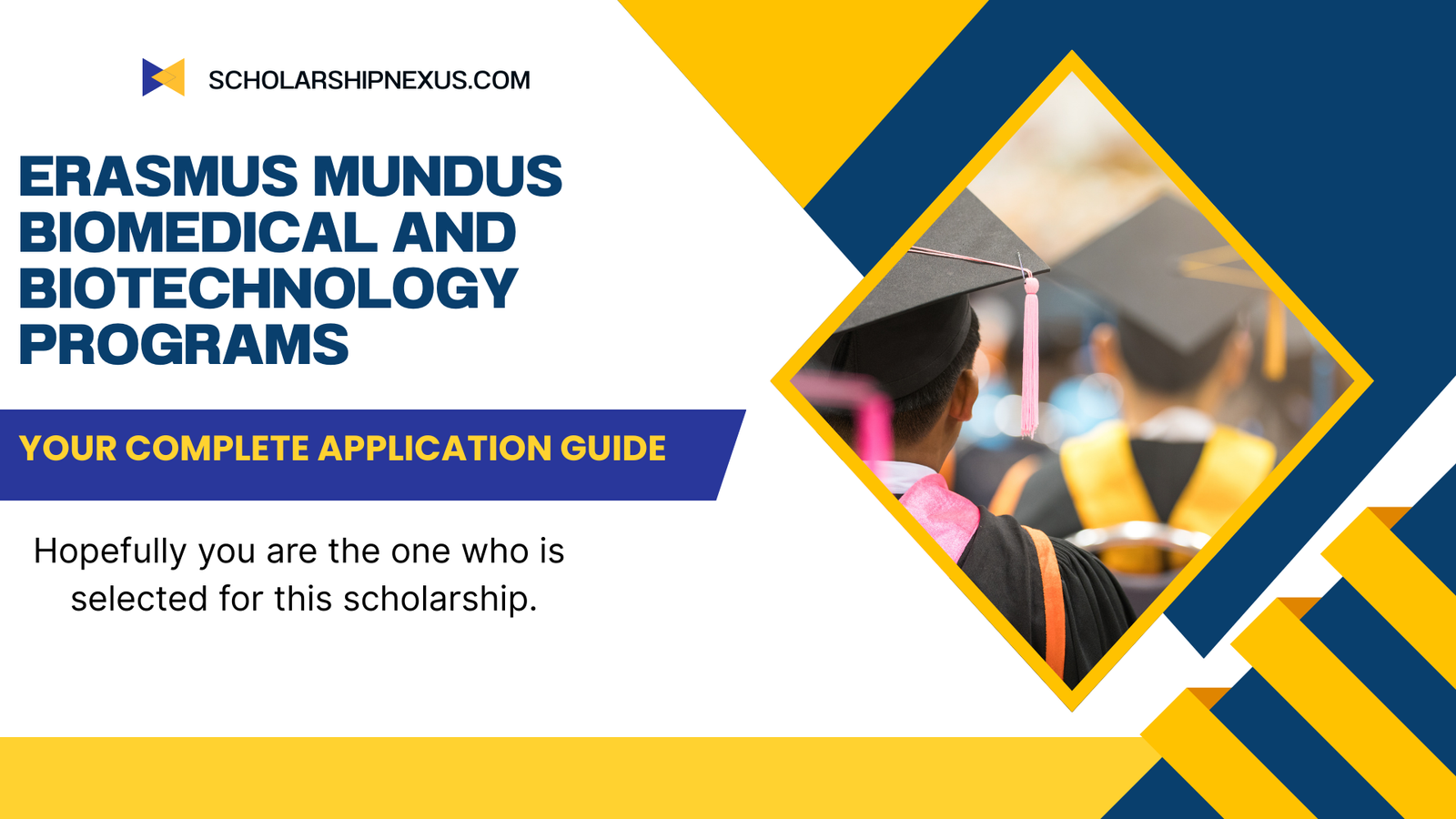If you are passionate about pursuing a career in biomedical or biotechnology fields, explore the Erasmus Mundus Biomedical and Biotechnology Programs, which provide world-class education and training across Europe. These programs offer students advanced knowledge in their areas while fostering international collaboration and cultural exchange.
This program prepares students to handle world challenges in the health system, sustainable applications. This article provides all information related to Erasmus Mundus Biomedical and Biotechnology Programs.
Erasmus Mundus Biomedical Engineering Programs:
The student who has a bachelor’s degree requires mechanical, chemical, and electrical engineering.
1. Medical Technology and Healthcare Business (EMMAH):
Combines healthcare management with biomedical and medical technology.
2. NeuroData – Brain and Data Science:
Bachelor’s backgrounds in brain sciences, life sciences, physics, chemistry, engineering, or cognitive sciences with proficiency in biology, math, and programming.
3. Master’s in Sustainable Systems Engineering (EMSSE):
Addresses sustainable engineering solutions across disciplines, including biomedical engineering, emphasizing smart systems, renewable energy, automation, and digitalization for eco-friendly designs.
4. Smart Systems Integrated Solutions (SSI):
This program emphasizes on development of intelligent systems by using software and hardware systems in collaboration with CS, mechanical and electrical engineering, industrial, electronics, and many other applications.
Erasmus Mundus Biotechnology Programs:
- CONEXUS – Marine Biotechnology:
Specialized in biotech applications in marine ecosystems, emphasizing sustainable use of marine resources.
Visit the official site https://www.eu-conexus.eu/en/marine-biotechnology/
- International Master’s in Sustainable Drug Discovery:
Investigates eco-friendly drug development using biotech, chemistry, and bioengineering.
Visit the official site https://sustainabledrugdiscovery.eu/
- emPLANT+:
This program emphasizes innovative approaches in plant biotechnology and breeding to advance sustainable farming practices. It is tailored for students with a background in agriculture, plant biology, biotechnology, biochemistry, or related fields who are passionate about improving food security and promoting environmentally friendly agricultural solutions.
Visit the official site https://emplant-master.eu/
4. International Master’s in Sustainable Resource Management and Innovation
This program brings together biotechnology, bioprocess engineering, and sustainable resource management to address challenges in industries that rely on natural resources. It is ideal for students with a bachelor’s degree in chemical engineering, biotechnology, environmental sciences, or process engineering who are interested in creating sustainable solutions for the future of resource-based industries.
Visit the official site https://sinrem.eu/
- BioRef – Master in Biorefinery Engineering:
Centers on biorefinery processes for renewable resources, combining biotech and chemical engineering.
Visit the official site https://erasmusscholarship.com/bioref-erasmus-mundus/
- NANOMED – Master in Nanomedicine:
Highlights nanotech applications in medicine, integrating biotech, biochemistry, and materials sciences.
Visit the official site https://erasmusscholarships.com/nanomed-erasmus-mundus/
- Chemo informatics:
Combines chemistry and bioinformatics for chemical data analysis in pharmaceuticals and the environment. Bachelor’s in chemistry, physical chemistry, biochemistry, or similar with essential math, computer science, and physics knowledge.
Visit the official site https://masterchemoinfo.u-strasbg.fr/
- Danube AgriFood Master (DAFM):
It welcomes students with a bachelor’s degree in agricultural sciences, food science, biotechnology, environmental sciences, civil engineering, animal sciences, horticulture, veterinary medicine, or environmental engineering who are eager to tackle global issues.
Visit the official site https://agrifoodmaster.eu/index.html
- product enterprise
Encompasses the entire food innovation cycle, from product design to safety, emphasizing sustainability. Bachelor’s in food science, biotech, process engineering, biochemistry, or related fields with prerequisites in chemistry, tech, and mathematics.
Visit the official website https://www.erasmus-entrepreneurs.eu/
The Erasmus Mundus Biomedical and Biotechnology Programs present a wide range of opportunities for students aspiring to become leaders in biomedical engineering, biotechnology, and related fields. Designed around the latest developments like precision medicine, sustainable drug discovery, and nanomedicine, these programs prepare graduates with the skills needed to drive innovation and support essential industries. Enrolling in these programs connects students to a global network of researchers, professionals, and academic institutions, helping advance their careers. If you’re ready for a transformative educational experience, these programs could be the key to unlocking your full potential.
Frequently Asked Questions (FAQs)
What are the benefits of studying under Erasmus Mundus?
Erasmus Mundus offers the chance to study in multiple countries, experience diverse academic cultures, and build a global professional network. Scholarships typically cover tuition fees, travel, and living expenses, making it a highly accessible option for international students.
How do I apply for Erasmus Mundus programs?
Applications are submitted directly through each program’s official website.
What career opportunities are available after graduation?
Graduates can work in healthcare, pharmaceuticals, biomedical research, biotechnology industries, and academia. The international training also enhances employability in global job markets.
Who is eligible to apply?
Eligibility depends on the program, but generally, applicants need a bachelor’s degree in fields such as biomedical engineering, biotechnology, biology, chemistry, or related disciplines.
Can I study in more than one country with Erasmus Mundus?
Yes. A hallmark of Erasmus Mundus is mobility—students study at two or more universities in different European countries, gaining a rich and diverse educational experience.
